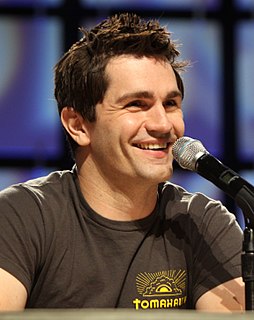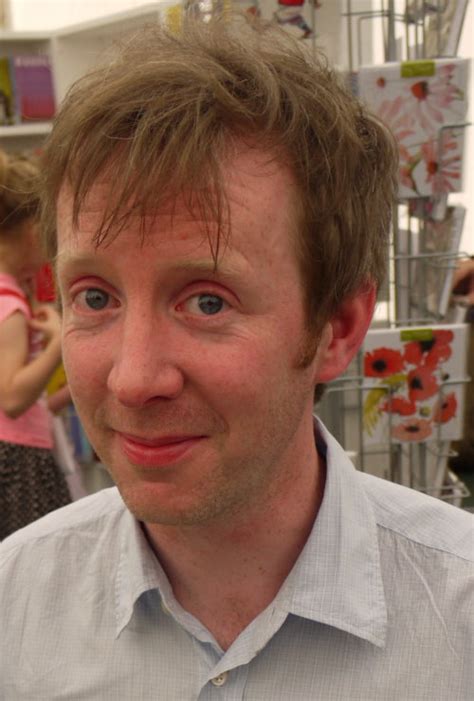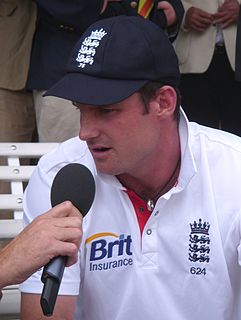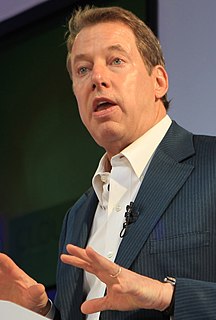A Quote by Jim Trelease
Story is the vehicle we use to make sense of our lives in a world that often defies logic.
Related Quotes
When something goes wrong in our lives we often ask ourselves "Who was present?" and if there was ever a singular person that was present in whatever the event was when something changed our lives. If we can't get beyond that event, we become obsessed with it or it changed our life in a way that we can't make sense of. We often seek out that person because that was the last time our lives made sense.
We read novels because we need stories; we crave them; we can’t live without telling them and hearing them. Stories are how we make sense of our lives and of the world. When we’re distressed and go to therapy, our therapist’s job is to help us tell our story. Life doesn’t come with plots; it’s messy and chaotic; life is one damn, inexplicable thing after another. And we can’t have that. We insist on meaning. And so we tell stories so that our lives make sense.
Dreams are a reservoir of knowledge and experience yet they are often overlooked as a vehicle for exploring reality. In the dream state our bodies are at rest, yet we see and hear, move about and are even able to learn. When we make good use of the dream state it is almost as if our lives were doubled: instead of a hundred years we live to be two hundred -- Tibetan Buddhist Tarthang Tulku from
History, in the end, is only another kind of story, and stories are different from the truth. The truth is messy and chaotic and all over the place. Often it just doesn’t make sense. Stories make things make sense, but the way they do that is to leave out anything that doesn’t fit. And often that is quite a lot.
When we can let go of what other people think and own our story, we gain access to our worthiness—the feeling that we are enough just as we are and that we are worthy of love and belonging. When we spend a lifetime trying to distance ourselves from the parts of our lives that don’t fit with who we think we’re supposed to be, we stand outside of our story and hustle for our worthiness by constantly performing, perfecting, pleasing, and proving. Our sense of worthiness—that critically important piece that gives us access to love and belonging—lives inside of our story.
Literature is an aspect of story and story is all that exists to make sense of reality. War is a story. Now you begin to see how powerful story is because it informs our worldview and our every action, our every justification is a story. So how can story not be truly transformative? I've seen it happen in real ways, not in sentimental ways or in the jargon of New Age liberal ideology.



































